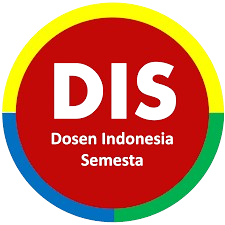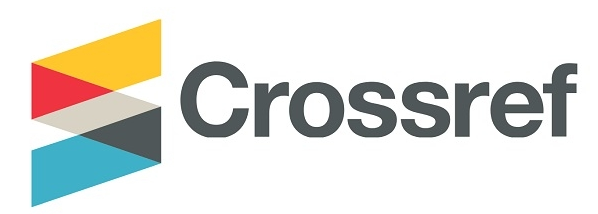ENGLISH TEACHER COMPETENCIES IN TECHNOLOGY-ASSISTED LEARNING AND ITS CORRELATION WITH LEARNING MOTIVATION OF SENIOR HIGH SCHOOL STUDENTS IN BULELENG REGENCY
DOI:
https://doi.org/10.36526/ln.v7i2.3239Keywords:
Teacher competencies; technology-assisted learning; learning motivationAbstract
This study aimed to investigate the correlation between English language teachers’ competence in technology-assisted teaching and the English learning motivation of senior high school students in Buleleng Regency, Indonesia. The English teachers' competence, especially in conducting technology-assisted teaching and learning activity is a crucial aspect for ensuring a successful English language instruction. The present study analyzed the level of the English teachers’ competence in technology-assisted teaching from the students’ perspectives. This study also explored whether or not the students would be motivated by technology-assisted learning. The data were collected through surveys, interviews, and observations. The findings revealed that both teachers’s competence and the students’ motivation were categorized as high. This study also confirmed a positive correlation between teacher competence in technology-assisted teaching and student motivation. However, this correlation was at a moderate level suggesting that other factors might influence the students’ motivation. The results emphasize the importance of teachers enhancing their technology-assisted teaching skills to improve students' motivation to learn English.
References
Akdon, & Riduwan. (2009). Aplikasi Statistika dan Metode Penelitian untuk Administrasi dan Manajemen.Bandung: Dewa Ruci
Alakrash, H. (2021). Factors affecting the application of communicative language teaching CLT in Syrian schools. TESOL and Technology Studies. https://sabapub.com/index.php/tts/article/view/143
Budiwano, S. (2017). Metode Statistika: Untuk Mengolah Data Keolahragaan. Metode Statistika.
Data Pokok Pendidikan Direktorat Jendral Pendidikan Anak Usia Dini, Pendidikan Dasar, dan Pendidikan Menenga Kementrian Pendidikan dan Kebudayaan. (2023). Data Sekolah Kabupaten Buleleng. https://dapo.kemdikbud.go.id/sp/2/220100
Dauyah, E., & Yulinar, Y. (2018). Faktor-Faktor Yang Mempengaruhi Motivasi Belajar Bahasa Inggris Mahasiswanon-Pendidikan Bahasa Inggris. Jurnal Serambi Ilmu, 19(2), 196-2009.
Dewi, N., Paragae, I., & ... (2023). Multicultural Education English Teachers’ Perceptions and Practices in International School. Language and …, 6(1), 58–65. https://ejournal.undiksha.ac.id/index.php/JJPBI/article/view/52310%0Ahttps://ejournal.undiksha.ac.id/index.php/JJPBI/article/download/52310/25112
Djumanova, B. (2020). Interactive Methods to Teach Cultural Differences. “Science and Education” Scientific Journal, 1(4), 132–135.
Fadli, A., Suharno, S., & Musadad, A. A. (2017). Deskripsi Analisis Kebutuhan Media Pembelajaran Berbasis Role Play Game Education untuk Pembelajaran Matematika. In Prosiding Seminar Nasional Teknologi Pendidikan.
Hosnan, M. (2014). Pendekatan Saintifik dan Kontekstual dalam Pembelajaran Abad 21. Bogor: Ghalia Indonesia
Indriani, R., & Wirza, Y. (2020). Praktik guru dalam pemanfaatan teknologi di kelas Bahasa Inggris. Jurnal Penelitian Pendidikan, 20(1), 98-110.
Israel, G. D. (1992). Sampling the evidence of extension program impact. Gainesville, FL: University of Florida Cooperative Extension Service, Institute of Food and Agriculture Sciences, EDIS.
Jogiyanto. 2009. Sistem Informasi Keperilakuan. Yogyakarta: Andi.
Latorre-Cosculluela, C. (2021). Flipped Classroom model before and during COVID-19: using technology to develop 21st century skills. Interactive Technology and Smart Education, 18(2), 189–204. https://doi.org/10.1108/ITSE-08-2020-0137
Mahayana, D. H., Artini, L. P., & Padmadewi, N. N. (2020). Perceived and Observed Teaching Creativity of English Teachers in Smkn 1 Negara. International Journal of Language and Literature, 4(1), 22. https://doi.org/10.23887/ijll.v4i1.30223
Paragae, I. N. S. (2023). Innovative Teaching Strategies in Teaching English as a Foreign Language. English Teaching and Linguistics Journal (ETLiJ), 4(1), 1–9. https://doi.org/10.30596/etlij.v4i1.12990
Permanasari, Anna. (2016). STEM Education: Inovasi dalam Pembelajaran Sains. Prosiding Seminar Nasional Pendidikan Sains (SNPS)
Ratminingsih, N. M., Gede Budasi, I., Piscayanti, K. S., Adnyayanti, E. P. N. L., & Paragae, S. N. I. G. A. P. (2021). 4C-Based Learning Model: What, Why, How? Jpi, 10(2), 244–255. https://doi.org/10.23887/jpi-undiksha.v10i2.31400
Rahim, F. R., Suherman, D. S., & Murtiani, M. (2019). Analisis Kompetensi Guru dalam Mempersiapkan Media Pembelajaran Berbasis Teknologi Informasi Era Revolusi Industri 4.0. Jurnal Eksakta Pendidikan (Jep), 3(2), 133-141.
Rahmat, H., & Jannatin, M. (2018). Hubungan Gaya Mengajar Guru Dengan Motivasi Belajar Siswa Pada Mata Pelajaran Bahasa Inggris. El Midad, 10(2), 98-111
Rosadi, H., Putra, E. H., Ulfianah, E., & ... (2022). Peranan PT. Pertamina EP Prabumulih Field dalam Mendukung Danau Shuji Menjadi Desa Wisata di Kabupaten Muara Enim. Jurnal …. http://journal.universitaspahlawan.ac.id/index.php/jpdk/article/view/6732
Sanabria, J. C. (2017). Enhancing 21st century skills with AR: Using the gradual immersion method to develop collaborative creativity. Eurasia Journal of Mathematics, Science and Technology Education, 13(2), 487–501. https://doi.org/10.12973/eurasia.2017.00627a
Sugiharni, G.A.D. (2018). Pengembangan Modul Matematika Diskrit Berbentuk Digital Dengan Pola Pendistribusian Asyn chrnous Menggunakan Teknologi Open Source. Jurnal Nasional Pendidikan Teknik Informatika (JANAPATI), 7(1), 58-72
Sugiyono, S (2006). Statistika untuk Penelitian, Cetakan kesembilan, Penerbit CV. Alfabeta, Bandung.
Sugiyono, S. (2010). Metode penelitian kuantitatif dan kualitatif dan R&D.
Sulastri, S., Fitria, H., & Martha, A. (2020). Kompetensi profesional guru dalam meningkatkan mutu pendidikan. Journal of Education Research, 1(3), 258-264.
Syam, N. I., Jubhari, Y., & Sasabone, L. (2023). Implementation of Technology on English for Specific Purposes (ESP) Students in Communicative Language Teaching Approach. … of Language Teaching and …. https://ethicallingua.org/25409190/article/view/566
Sykes, J. M. (2017). Technologies for Teaching and Learning Intercultural Competence and Interlanguage Pragmatics. The Handbook of Technology and Second Language Teaching and Learning, Icc, 118–133. https://doi.org/10.1002/9781118914069.ch9
Uno, H. B. 2008. Teori Motivasi & Pengukuran. Jakarta: PT Bumi Aksara
Yaccob, N. S. (2022). Globally competent teachers: English as a second language teachers’ perceptions on global competence in English lessons. Frontiers in Psychology, 13. https://doi.org/10.3389/fpsyg.2022.925160
Downloads
Published
How to Cite
Issue
Section
License
This work is licensed under a Creative Commons Attribution-ShareAlike 4.0 International License.


















